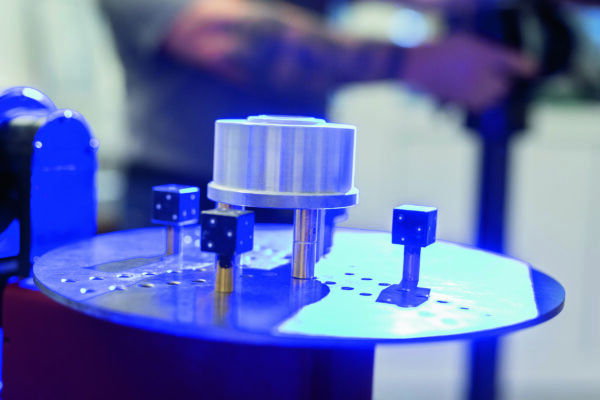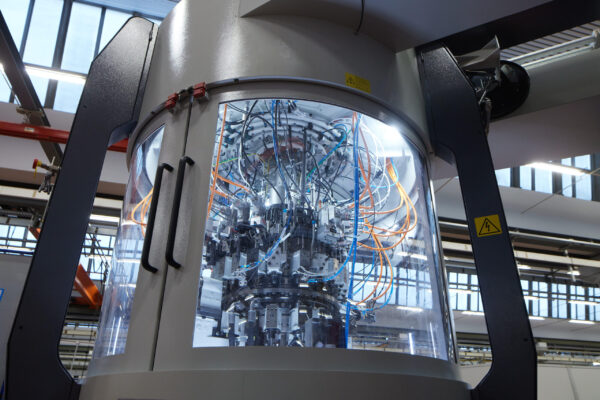Renewi reported a strong H118 trading performance, its first meaningful results period since the merger between the former Shanks and Van Gansewinkel (VGG) groups in February this year. Hence, the 21% pro forma EBIT growth (in constant exchange rate or CER terms) for the enlarged business was achieved at the same time as undertaking a significant integration programme. Merger synergies contributed to this result but good underlying market conditions in Commercial Waste were the key driver of underlying progress. We have increased earnings estimates for the current year, with subsequent years in line with previous levels. Guidance on expected merger benefits is unchanged. This note makes comparisons with pro forma revenue and EBIT numbers in prior year periods as shown in Exhibit 1 along with reported H118 divisional results.
Exhibit 1: Renewi divisional & interim splits
Year end March (£m) |
2016 |
H117 |
H217 |
2017 |
H118 |
|
H118 y-o-y |
H118 y-o-y |
|
Pro forma |
Pro forma |
Pro forma |
Pro forma |
|
|
Reported |
CER |
Group revenue |
1,241.9 |
708.5 |
758.0 |
1,466.5 |
782.9 |
|
11% |
4% |
Commercial Waste |
788.1 |
446.5 |
489.2 |
935.7 |
505.5 |
|
13% |
5% |
Hazardous Waste |
155.5 |
94.2 |
89.2 |
183.4 |
103.0 |
|
9% |
1% |
Monostreams |
129.4 |
77.5 |
84.9 |
162.4 |
90.2 |
|
16% |
8% |
Municipal |
187.7 |
104.1 |
103.5 |
207.6 |
98.7 |
|
-5% |
-6% |
Services / Interco |
(18.8) |
(13.8) |
(8.8) |
(22.6) |
(14.5) |
|
|
|
|
|
|
|
|
|
|
|
|
Group operating profit |
34.2 |
32.9 |
20.2 |
53.1 |
43.6 |
|
33% |
21% |
Commercial Waste |
27.1 |
24.4 |
21.5 |
45.9 |
36.2 |
|
48% |
38% |
Hazardous Waste |
15.7 |
12.3 |
7.7 |
20.0 |
13.7 |
|
11% |
5% |
Monostreams |
8.3 |
6.9 |
5.4 |
12.3 |
9.5 |
|
38% |
29% |
Municipal |
9.4 |
1.1 |
(3.7) |
(2.6) |
(4.9) |
|
N/A |
N/A |
Services/Central |
(26.3) |
(11.8) |
(10.7) |
(22.5) |
(10.9) |
|
|
|
Commercial (FY17 pro forma – Netherlands: Belgium, revenue 60:40, EBIT 50:50)
The leading operator in the collection and treatment of solid waste in the Netherlands and Belgium, following the merger between former Shanks and VGG operations in the region.
Commercial is the largest of Renewi’s four ongoing reporting divisions at two-thirds of pro forma FY17 group revenue. Approximately 85% of revenue is generated by service fees (ie collection and processing) with recyclate income (ie the sale of materials recovered from sorted waste) accounting for the remainder. Positive GDP progression is translating to rising levels of secondary or post-use materials from each of – in order of importance – the industrial/commercial, construction/demolition and municipal/residential sub-sectors.
The improvement in Commercial performance is substantially down to higher volumes of waste being handled at this division’s Dutch and Belgian facilities. So far this year, pricing is not understood to have been a material contributor to the revenue progress shown above. Moreover, management has stated that there were no unusual items included in reported profitability so we consider this to be a sustainable, representative outturn at the prevailing volume levels. The elimination of obvious overlap in the operations of the merged division and increased internalisation of collected waste into processing (at the same time lowering third-party processing costs and aiding plant utilisation levels) will have been early synergy gains, though these were not quantified. Recyclate income has benefitted from firmer pricing in the Netherlands supporting year-on-year gains – with a good incremental margin drop through, although Belgium’s wood activity has been more competitive. This division recycles received waste and has longer-term agreements in place (to or beyond 2020) with incinerator operators, so it has a degree of protection in this area in a market where volumes are rising.
Hazardous
Operation of specialised industrial cleaning and waste processing facilities and transport fleet, largely in Holland. Oil and gas/petrochemicals and soil remediation are important client sub-sectors.
This division is substantially comprised of two former Shanks businesses, being ATM (treatment of contaminated materials – soil, water, chemicals) and Reym (cleaning of industrial equipment/heavy industry), into which the smaller VGIS operation has been incorporated following the merger with VGG. The majority of revenues are generated through service fees with relatively low recyclate revenues in this division. Activity levels overall were reasonable, although there were variable sub-trends in both of the primary business streams. At Reym, refinery-based equipment cleaning saw improved volumes and utilisation levels were high, though under competitive pricing conditions. Thermal soil treatment and remediation is ATM’s biggest work flow and demand for these services is considered to be strong, consistent with a recovering construction sector. This said, Renewi has voluntarily reduced throughput pending the resolution of a regulatory investigation and/or finding new market outlets. Consequently, current guidance is for a throughput run rate of around half of the normal level (being c 1m tonnes pa) for the remainder of FY18 and all of FY19. We sense that this is a conservative position and a faster resolution is being sought. More positively, quayside/ ship-based volumes have been particularly strong, boosted by the start-up phase of a major long-term offshore project. Elsewhere, truck-based volumes received have remained subdued. Overall, divisional revenues were marginally ahead in euro terms and, despite the challenges outlined, its EBIT margin improved (by 20bp to 13.3% versus H117 pro forma). Selective investment is ongoing and the integration of VGIS sites into the divisional footprint is progressing well.
Monostreams
Four independent specialist recycling operations (comprising three former VGG businesses and one former Shanks business) addressing specific waste flows with inbound and outbound supply partnerships.
Coolrec (recycling of electronic and electrical goods and associated materials) is the largest of the four specialisms by revenue; while revenue was boosted by higher metals prices, variability in individual product volumes coupled with some fire disruption held profitability slightly below the prior year. Mineralz (treatment, re-use into building materials or landfill of incinerator waste) has historically been the leading profit generator and benefited from both an increase in volumes and rising metals prices. Moreover, its developing recycled intermediate materials streams used in new building products continue to gather momentum. Plans to expand a landfill site near Europort are said to be making good progress, while the planned cost of closure of two others in the next 18 months or so is expected to be within existing provisions. Maltha (leading glass recycler) has been rebuilding profitability in the last couple of years and this process continued, supported by good activity levels, operational improvements and investment across a number of sites. This business is one-third owned by Owens Illinois, which is also the leading customer for the recycled cullet and powder materials it produces. Lastly, Orgaworld (treatment of organic food and horticultural waste, producing bio-based products and green energy) is the former Shanks operation and achieved a revenue and profit performance in line with the prior year despite being partly hampered by a leak at one of its sites. Overall, the Monostreams division delivered a healthy single-digit revenue uplift and a 160bp margin improvement (to 10.5%) led by Mineralz and supported by Maltha.
Municipal
The receipt of local authority waste to which a variety of advanced treatment solutions are applied, generating energy, recovered fuels and recyclates and maximising landfill diversion. There are nine operational sites (seven in the UK, two in Canada), plus two under construction (Derby UK and Surrey, Canada). Typically operated under PPP/PFI arrangements in a range of ownership structures from 100% consolidated to 20% associate interest.
The Municipal division’s trading environment has been affected by a number of external market and internal operational factors, as reported during FY17, and this has been reflected in its financial performance. H118 saw a stabilised reported trading loss of £3.5m in line with H217. (Prior year provisioning of £3m matched other anticipated onerous contract issues.) The new management team has taken steps to redress suboptimal plant utilisation and output pricing challenges by developing new offtake arrangements and investing to improve process efficiency. That said, management expects a gradual step-by-step recovery in performance rather than a sharp return to profitability over our estimate horizon. The new Derby Mechanical Biological Treatment (MBT) facility is now scheduled to become operational in mid calendar 2018 (Renewi is the plant operator under a 25-year PPP arrangement in a 50:50 JV with EPC contractor Interserve). Canadian financial performance has been distorted by the construction and commissioning of the new Surrey facility, the associated gross revenue and costs for which are included in reported numbers. There has been a delay in the commissioning phase (now expected to complete by the end of calendar 2017) but Renewi anticipates recovering at least a partial contribution from its contractual partners. Elsewhere, Ottawa has performed well although London has experienced secondary odour issues following process challenges, which has led to restricted capacity utilisation. We believe that this is the likely cause of the larger Canadian operating loss reported in H118 compared to H217 (and compared to a healthy profit in H117). Management confidently states that it expects all three facilities to be generating profit in FY19, though they will not be sufficient to offset the losses (albeit reducing) in the UK.















